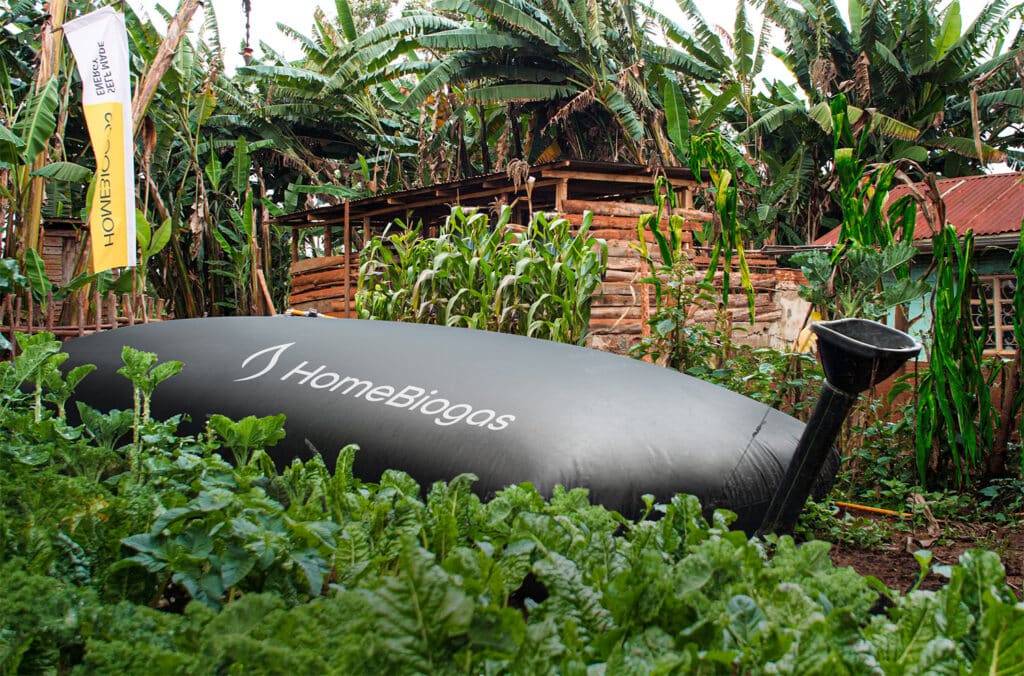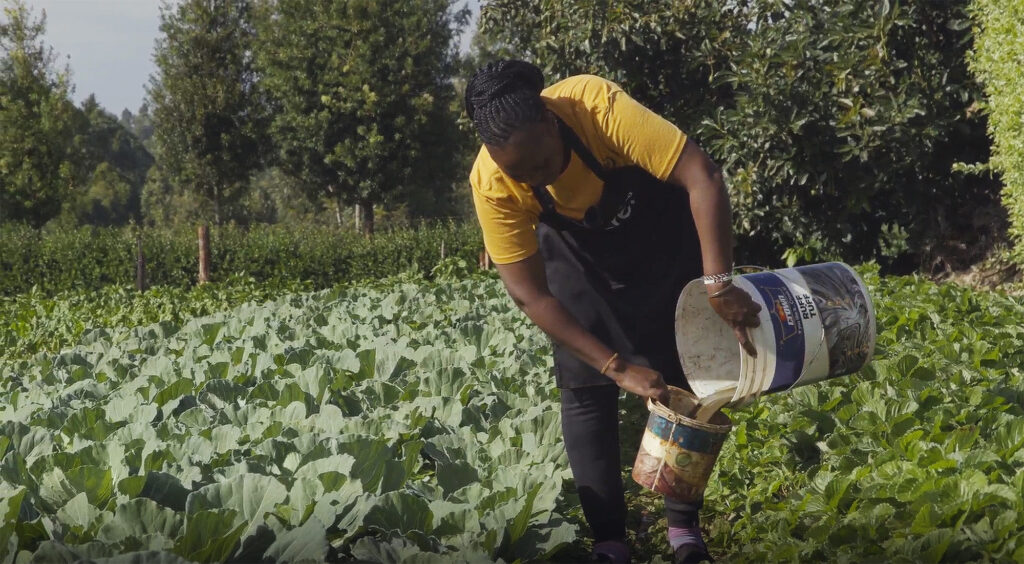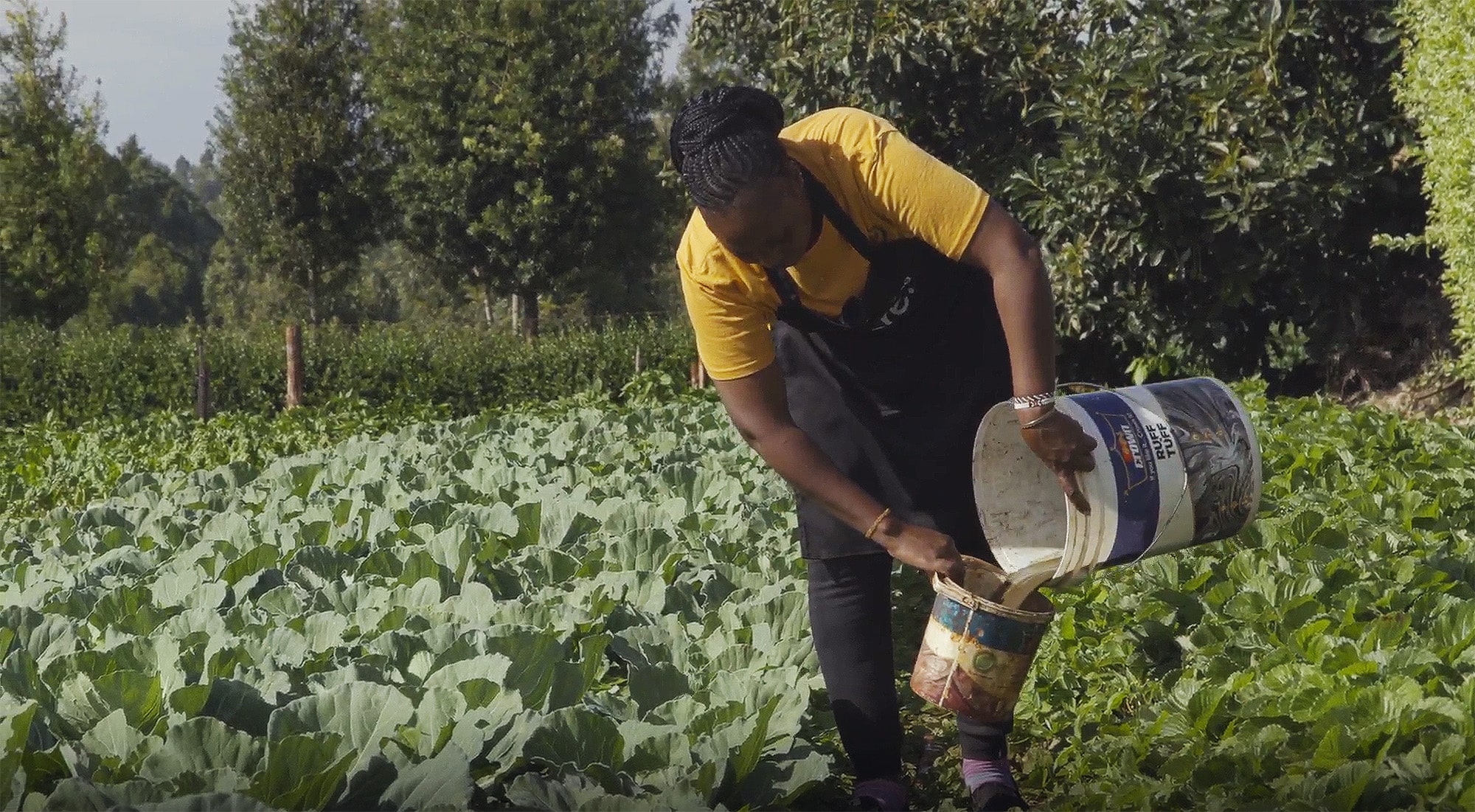
As the world moves towards sustainable and eco-friendly solutions, farmers are rediscovering the power of nature to restore soil health and increase productivity. One of the most remarkable agricultural innovations is bio-slurry—a natural, organic byproduct of biogas digesters that is proving to be a game-changer for farmers. But what exactly is bio-slurry?
Bio-slurry is a nutrient-rich liquid organic fertilizer produced when animal manure is broken down in a biogas digester. As the organic material decomposes, it generates biogas (a clean energy source for cooking) and bio-slurry (a powerful organic soil enhancer). Unlike chemical fertilizers, which degrade soil over time, bio-slurry naturally improves soil structure, replenishes nutrients, and boosts plant health—ensuring sustainable and bountiful harvests for years to come.
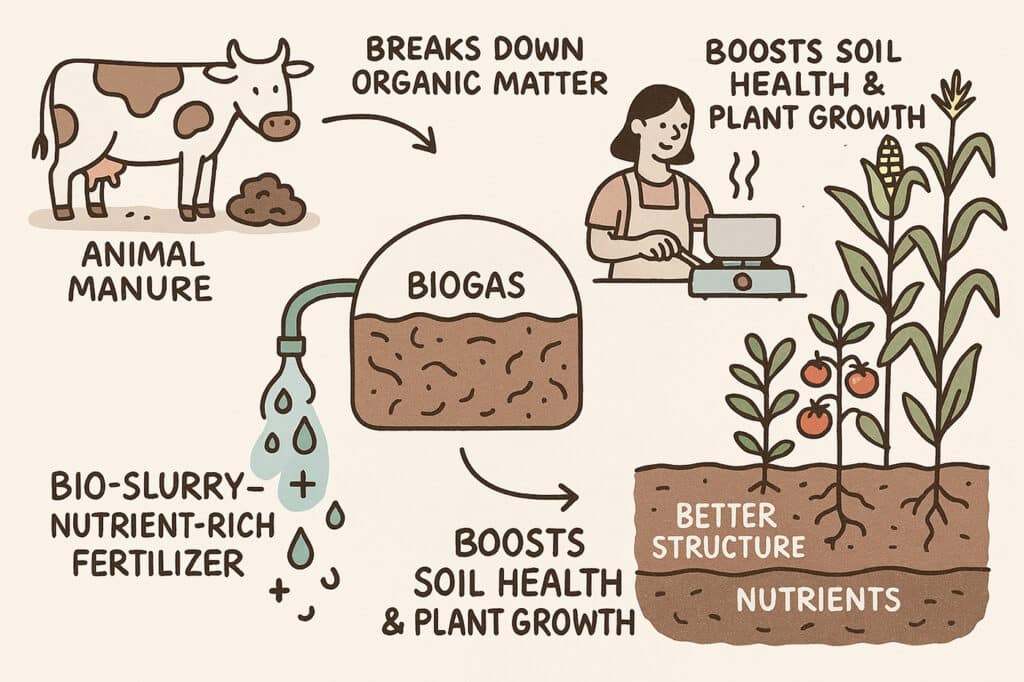
How Bio-Slurry Works?
Unlike conventional fertilizers that provide plants with only a few key nutrients, bio-slurry is a complete organic solution packed with macro and micronutrients, beneficial microbes, and organic matter. This natural formula enhances soil fertility in multiple ways:
Replenishing Nutrients: Bio-slurry contains nitrogen, phosphorus, potassium, and other vital minerals that crops need to thrive.
Improving Soil Health: The organic matter in bio-slurry enhances soil texture, water retention, and aeration—creating the perfect conditions for plant growth.
Boosting Microbial Activity: Bio-slurry introduces beneficial bacteria and fungi that break down organic material in the soil, making nutrients more available to plants.
Protecting Against Pests and Diseases: The microorganisms in bio-slurry help create a natural defense against harmful pathogens and pests, reducing the need for chemical pesticides.

The Challenge with Synthetic Fertilizers
For decades, farmers have relied on synthetic fertilizers like DAP (Diammonium Phosphate) and CAN (Calcium Ammonium Nitrate) to boost crop yields. However, these fertilizers come with challenges:
Environmental Impact: Synthetic fertilizers contribute to water pollution and greenhouse gas emissions, affecting both human and environmental health.
High Costs: A single 50kg bag of DAP costs approximately Ksh 7,000, and farmers need multiple bags per acre.
Soil Degradation: Overuse of chemical fertilizers can deplete soil nutrients, making land less productive over time.
How Bio-Slurry Can (and should) Replace Synthetic Fertilizers?
Switching to bio-slurry from biogas digesters can significantly reduce farming costs while improving soil fertility. Here’s a cost comparison for maize farming per acre:
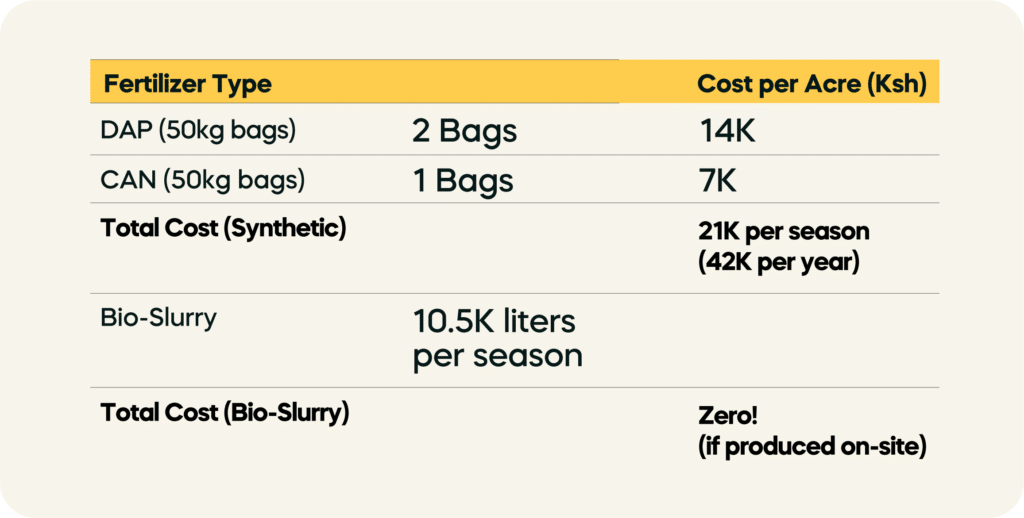
Farmers using bio-slurry can eliminate these costs entirely, making farming more affordable and sustainable.
The Magic of Bio-Slurry Across Different Crops
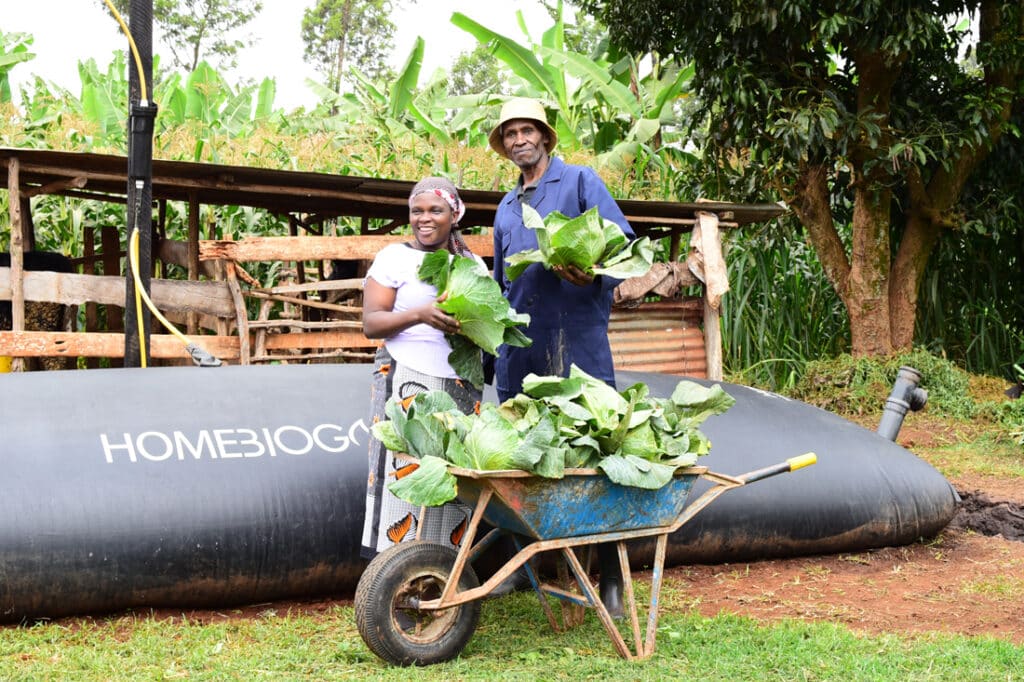
Farmers across the country are embracing bio-slurry for a variety of crops, and the results have been astonishing. From staple foods to cash crops, bio-slurry is unlocking new levels of productivity and sustainability.
- Maize and Staple Crops
Farmers growing maize, wheat, rice, and other staple foods have reported stronger plants, healthier leaves, and more abundant yields when using bio-slurry. Unlike synthetic fertilizers, which often lead to soil depletion over time, bio-slurry continuously nourishes the land, ensuring sustainable crop production season after season.
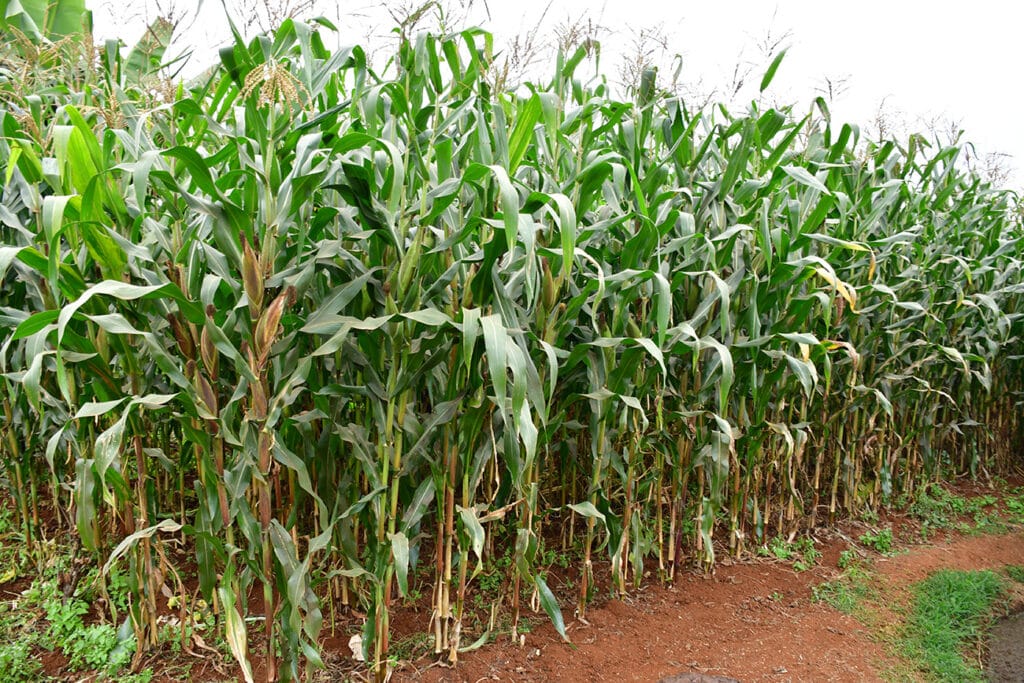
- Vegetables and Fruits
Vegetable farmers growing tomatoes, spinach, kale, and cabbage have seen remarkable improvements in both quantity and quality. The nutrients in bio-slurry enhance the taste, color, and nutritional value of the produce, making it more appealing to consumers and increasing market value. For fruit farmers growing bananas, mangoes, and avocados, bio-slurry promotes strong root development and better fruit formation, resulting in juicier, healthier, and more robust harvests.
- Coffee and Tea Plantations
Kenya’s coffee and tea farmers are witnessing a transformation on their farms. Traditionally, these high-value crops require careful soil management to maintain quality and productivity. With bio-slurry, coffee and tea plants grow healthier, develop stronger roots, and yield high-quality produce without relying on expensive synthetic fertilizers.
Real Farmer Experiences
Many farmers have already made the switch and are seeing positive results:
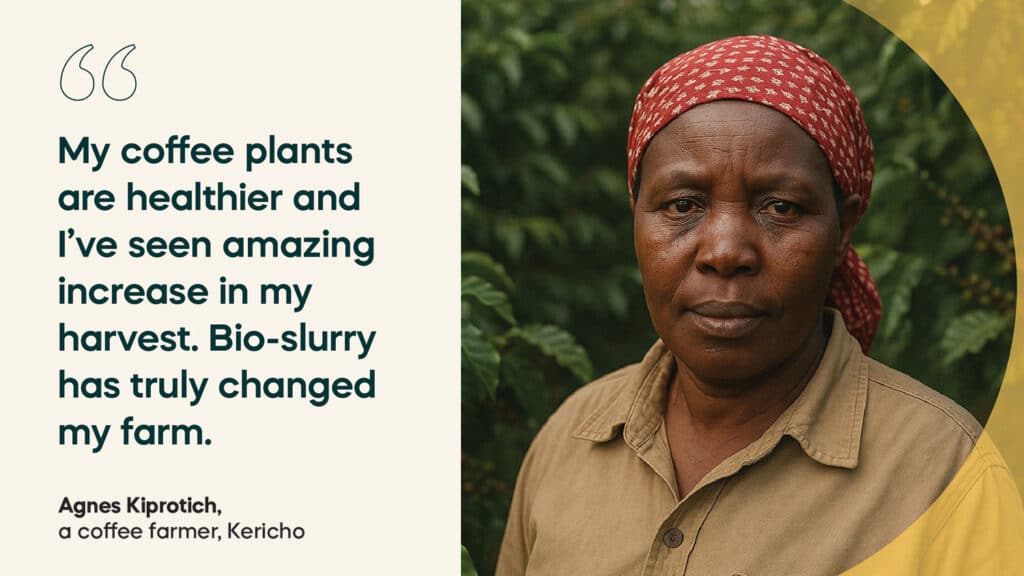
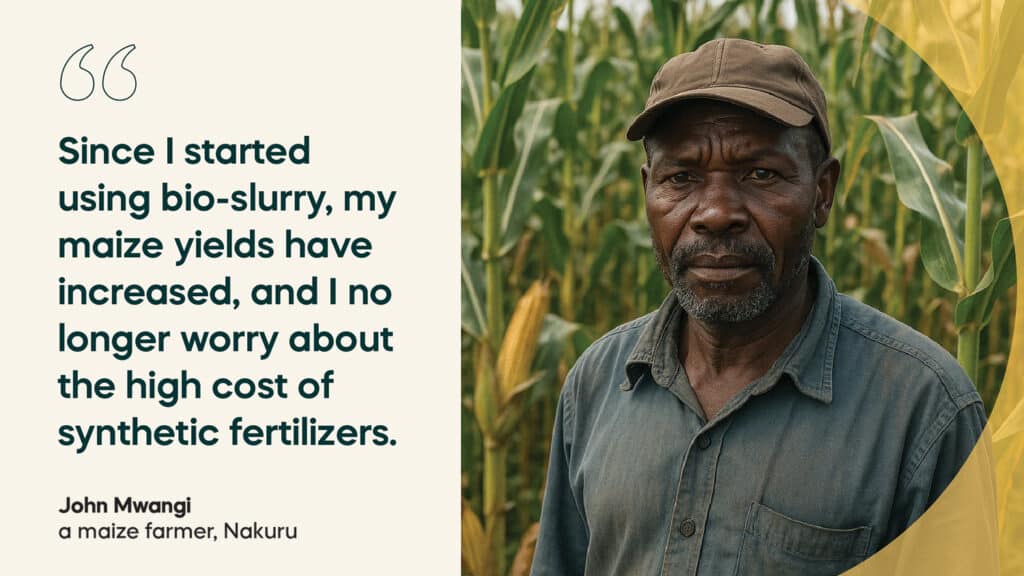
Why Bio-Slurry is the Future?
According to Dr. Jane Karanja, an agronomist specializing in soil health: “Bio-slurry replenishes essential nutrients while also improving soil microbial activity. This is a crucial step toward sustainable farming.”
The Food and Agriculture Organization (FAO) also supports organic fertilizers, stating that “Sustainable farming solutions like bio-slurry can reduce environmental degradation while ensuring food security for future generations.”
With rising costs of chemical fertilizers and increasing concerns about environmental degradation, bio-slurry presents an opportunity to embrace a farming solution that is both cost-effective and sustainable. Unlike synthetic fertilizers, which can be expensive and sometimes harmful to soil health, bio-slurry is affordable, readily available, and completely natural—offering farmers a practical way to boost their productivity while protecting the environment.
Are you ready to make farming more affordable and sustainable? Join the #GrowWithBioSlurry movement today and switch to natural, organic bio-slurry. Invest in a HomeBiogas digester and take a step towards a cleaner, greener future!
